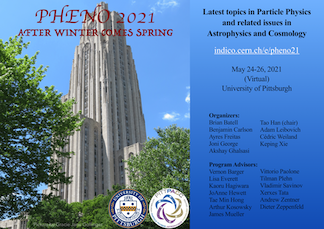Speaker
Description
Collider data analysis, which usually requires complicated software frameworks, has a very steep learning curve. Therefore, a sizable barrier exists between data and the physicist wishing to work on different analysis ideas. Recently, a new approach has been under development to address this issue and provide a practical way to collider data analysis. This approach features the so-called "Analysis Description Language" (ADL), a domain specific, declarative language capable of describing the contents of an LHC analysis in a standard and unambiguous way, independent of any computing frameworks. In ADL, analyses are written in human-readable text files, separating object, variable and event selection definitions in blocks. The ADL syntax includes mathematical and logical operations, comparison and optimisation operators, reducers, four-vector algebra and commonly used functions. ADL can be rendered executable on event data with any infrastructure capable of understanding its syntax. The first such complete infrastructure is the CutLang runtime interpreter, which can run ADL analyses on data witout any need for programming in a general purpose language. ADL and CutLang are designed for use in both experimental and phenomenological data analyses, and are also being integrated for use with the LHC Open Data. A number of LHC analyses have already been implemeted with ADL to form an analysis database for interpretation of experimental results or other phenomenology studies. ADL/CutLang also provde a practical setup to effectively perform collider sensitivity studies. This talk will introduce ADL and CutLang and their growing applications in different areas of collider analysis.
